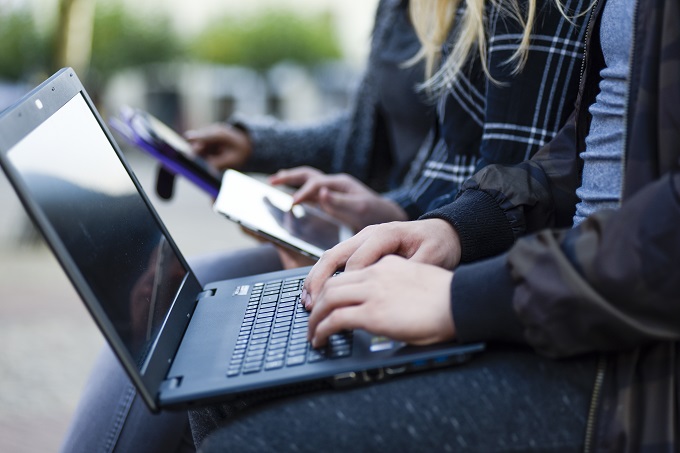
© Gerhard Seybert - stock.adobe.com
It highlights how iwi used their own resources and organisational skills to support their rangatahi in very positive ways in the face of system difficulties.
The report recommends building and supporting iwi capacity to promote and enhance digital inclusiveness, providing suitable devices to all students, addressing connectivity barriers, and providing accelerated learning and tutoring to help students recover from lockdown.
Ngāti Whātua Ōrākei Whai Maia Chief Executive Rangimarie Hunia says the iwi was alarmed by the high number of whānau struggling with remote education challenges, so it conducted surveys to understand the specific issues and level of support needed within the iwi.
Of the 668 rangatahi aged between 12 – 17 years – including 217 senior students studying NCEA – more than 50 percent only had, at best, an internet-enabled phone in the household to use for remote learning.
A lack of access to suitable digital devices had flow-on effects for students – negatively impacting their mental health and resilience, and senior students being worried about their future prospects.
There is a growing digital divide that hinders the ability for many Māori and Ngāti Whātua Orakei learners to participate and flourish. This ranges from access to devices, the ability to access content and the quality of the resources.
To address the issue, the iwi distributed more than 400 Chromebooks to whānau. That support allowed student Rereahu Turia, the independence and ability to complete her schoolwork.
“Before I always had to wait my turn, which was never easy and very limiting. The Chromebook allowed me freedom and access to do my mahi, increasing my chances of success in completing my school work and NCEA,” she says.
Ms Hunia says the report highlights the positive effects of addressing the digital divide on the future outlook of both rangatahi and their parents.
She says the lessons can be generalised and applied to other communities beyond Ngāti Whātua Ōrakei. Iwi, hapū and whānau are critical in developing and driving the solutions.
“It’s critical that there is equitable access and opportunities to enable Māori and Ngāti Whātua Orakei educational success. Digital enablement is critical for the future of our rangatahi – for employment, financial independence and entrepreneurship.”
Report co-author, Professor Stuart McNaughton, from the Faculty of Education and Social Work at the University of Auckland, says it highlights how it is important to understand community, whānau and tamariki resilience and adaptability, as well as the stresses and impact of an event such as COVID-19 has on well-being.
“The insights provided by Ngāti Whātua Ōrākei point to how the education system can better partner with iwi to overcome the divides and build on strengths,” he says.
Professor McNaughton was impressed by the extensive efforts of the iwi to assist their whānau and support the learning of their tamariki and rangatahi, and says it clearly boosted the flagging wellbeing of these stressed whānau.
“It emphasises the need, in the event of a national lockdown, for the government to ensure every school student requiring digital access to online lessons, resources, or learning support is supplied with a digital device and internet connectivity.”
The report can be found here.
Bullying contributes to poor wellbeing and absenteeism in New Zealand. Discover how you can address…
Free school lunches will continue under a modified model which will reportedly see $107 million…
A new interactive website showing daily attendance figures was launched last week as part of…
Two reviews of early literacy approaches and an accompanying Ministry of Education commentary show promising…
We must have bipartisan decision-making for education, says academics Bronwyn E. Wood and Taylor Hughson…
The OECD’s new report makes several policy recommendations for our education sector in the hopes…
This website uses cookies.